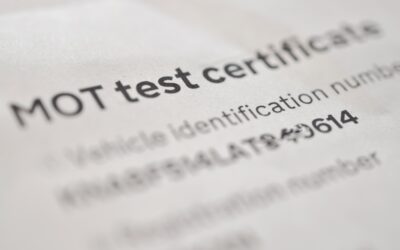It’s illegal to drive without car insurance. The penalties for driving without insurance include:
- Up to six points on your licence
- A fine of at least £300
- Your vehicle seized, or even destroyed
You might even get a court summons. And if you do, you could get even harsher penalties. Courts can issue unlimited fines, and they can disqualify you from driving.
Head here to read our full guide to the risks of driving without insurance.
So if you want to drive, you need insurance. But what’s the legal minimum insurance cover?
The Different Types of Insurance Cover
First, there are certain differences between car insurance and van insurance.
But whether you want to insure a car or a van, most insurers will let you choose from three different levels of insurance cover. Let’s take a look at each, and explore what each one covers.
Third Party Only Insurance Cover
When insurers talk about a “third party”, they mean “anyone involved in an insurance claim that isn’t you” – that is, the Policyholder, or the driver.
When it comes to car or van insurance, the third party is usually the other driver involved in an accident. But it could also be a pedestrian, a private property owner, or a passenger in your vehicle or another vehicle.
With third party insurance cover, if you have an accident and make a claim, your insurer will cover any damages to the other person’s vehicle or property. Or if any injuries are involved, they’ll cover any compensation other people might be due.
However, your insurer won’t cover any damage to your vehicle or your property, and they won’t cover you for any injuries you might sustain. Instead, you’ll be liable to pay for all your own repairs, and all your own medical costs.
But if you’re travelling with any passengers, your third party only insurance will cover them for any injuries they may sustain during an accident.
Also, if the accident wasn’t your fault and liability has been admitted, the other driver’s insurance provider should pay you any compensation you’re due.
It is vital that you ensure that you read your policy carefully and understand fully what you would be covered for and what you wouldn’t be covered for.
Third Party, Fire and Theft
This level of insurance offers you all the cover you’d get with a third-party only insurance policy. That is, it’ll cover damages and injuries sustained by other people involved in an accident, but it won’t cover you for any repair costs or medical bills.
But on top of this cover, this type of insurance will also cover you if your car’s damaged by fire, or stolen.
The exact cover you get will depend on your insurer. But in most cases, third party with fire and theft car insurance covers you for:
- A replacement car, if your car’s stolen and cannot be recovered.
- The repair costs following a break-in attempt. This could include damages to locks and windows, and the replacement costs for stolen radios, sat-navs, or other items.
- The repair costs of fire damage, whether the fire’s accidental, or the result of arson.
Comprehensive Insurance Cover
As the name suggests, comprehensive car or van insurance gives you the highest possible level of cover.
So as well as covering third parties for all damages and injuries they sustained following an accident, comprehensive policies will also cover you for any vehicle damages you sustain due to the accident. A comprehensive policy will also cover you for the all the costs associated with fire and theft that we outlined above.
Not all comprehensive insurance policies will cover everything as standard. Some insurers might offer extra protection at an added cost. For example, you may have to pay extra for breakdown cover, or to cover your car’s contents.
Other Types of Car Insurance
Insurers provide different levels of cover to meet your specific needs.
But there are other types of insurance policies out there. For example, temporary insurance can give you whichever level of cover you need for a strictly-limited period of time. This is useful if, for instance if you intend to borrow a friend’s car. Rather than becoming a named driver on their policy, or taking out a full policy on a car you’ll only drive once, you can take out a temporary policy to cover you for exactly as long as you need.
If you intend to use your car or van for business or commercial purposes, you may need to take out a specialist policy. Head here to read our guide to adding business use to your insurance, and here to read our guide to specialist insurance for couriers and delivery drivers.
Which Level of Cover is Right For Me?
Driving without insurance is illegal. At the very least, you need to have third party only insurance for your car or van.
Many drivers choose this entry-level insurance cover because they think it’s the cheapest. And for young drivers, who typically pay more for their insurance than older drivers, price comparisons are particularly important.
However, third party insurance policies are not necessarily cheaper than comprehensive car insurance policies.
With a third party only policy, you might pay less for your insurance than you would with a comprehensive policy. Yet if you’re involved in an accident and you need to make a claim, your repair costs could ultimately cost you a lot more than you would have paid for a comprehensive policy!
For total peace of mind, it’s almost always best to choose a comprehensive policy. With full cover, you can rest assured that no matter what happens to you on the roads, everything will be taken care of.
Whether you drive a car or a van, we’ll help you get the cover you need at a price you can afford. Get in touch to get a free quote online.




